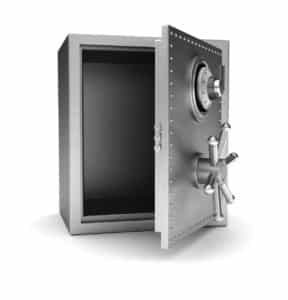Find Us Online
Building wealth is only half the job. Protecting wealth for your loved ones and yourself is equally important. Through estate planning, business planning, and asset protection, our firm will help you save everything you love — family, friends, and favorite charities. For more information, visit our website, where you will have access to our blog, events schedule, and a complimentary newsletter subscription!
Trust Administration Matters
If you have never handled funds for another person (as a “Fiduciary”) before, it might feel somewhat daunting to be appointed to serve as the trustee of a trust. In such a role, you owe high loyalty to that person or their beneficiaries if they have died.
This is true whether the trust is created under a will (i.e., a “testamentary trust”) or is an irrevocable trust created under a revocable living
It is preferable if the person establishing the trust notifies you before your appointment. If they did, you should ask for a copy of the legal document appointing you and ask the preparing attorney to provide you with an overview and address your questions. It is far better to know the responsibilities you will be taking on and politely refuse the appointment now than to bail out when the appointment takes effect later. But first, what are some of those responsibilities?
Trustee 101
A trustee may be a person or a financial institution, or both. The trustee holds legal title to the property for the benefit of another and acts according to the terms of the trust. The trust document will identify who the trustee is. Suppose the person who set up the trust was the initial trustee (as in a revocable living trust). In that case, you might be named successor trustee to administer the trust when the original trustee becomes incapacitated or dies. For example, John might set up a living trust and put all his assets into the trust. He is the initial trustee. John handles all the administrative matters of the trust during his lifetime. When John dies, the person and/or institution appointed as his successor trustee assumes complete control.
If a trust appoints you as the successor trustee, you do not have to do all the work yourself. Handling the assets of another can monopolize your time, so many people hire and supervise specific professionals to do some or all the work. For example, you may have an accountant take care of the taxes. 
Trust Administration
The specific actions that a trustee must take require the utmost integrity and care, including the following responsibilities:
- Read the trust agreement. Make sure you understand what the trust directs you to do. Get professional advice if you have questions. You need to know who the beneficiaries are, what they are supposed to receive, and when you must make distributions to the beneficiaries.
- Notify the plan’s beneficiaries and provide a basic roadmap to establish reasonable expectations.
- Marshal the assets. In other words, you must find, secure and value all trust assets as soon as possible. You may be required to file a claim to collect certain assets, like the proceeds of life insurance policies. You may need to hire a professional appraiser to value some assets, like the home’s contents, jewelry, and vehicles.
- Verify that homeowners insurance and property taxes are current and that coverage will continue until the sale or distribution is made.
- Identify and pay all final expenses, personal and trust taxes, and legitimate debts of the decedent. Some bills must be paid promptly. You also must provide proper notice to known and likely creditors.
- Provide an accounting to beneficiaries and obtain waivers or agreements before making significant distributions.
- Keep track of your time, and find out what fair compensation you deserve for taking on this significant role.
- Distribute assets. Follow the trust agreement carefully when making distributions to beneficiaries. Be prepared to say “no” to beneficiaries when they demand distributions not authorized by the trust.
- Terminate the trust. After paying all expenses, debts, and taxes and distributing all trust assets (if the trust permits), you can terminate the trust and conclude your duties as a trustee.
As the trustee, you bear significant potential liability for misdeeds. If the assets are substantial, seek an estate planning lawyer who has been through the process for many years.
To find out more about being a trustee, executor, or as the appointed person in a power of attorney, please join us at a Zoom: Thursday, April 20th, at 6:00 p.m. – “What To Tell Your Backup Person” with Tom Downs.
We also have the following other events available to you or your family, chosen successor agents, and those who you would like to invite to share a learning opportunity:
- In Person: Wednesday, March 29th, 10:30 a.m. – “Overview of Estate Planning” with Tom Downs, Stephen Wallace, and Justin Wedgewood
- In Person: Wednesday, April 12th, 5 p.m. – “Overview of Estate Planning” with Stephen Wallace
- Zoom: Thursday, April 20th, 6 p.m. – “What To Tell Your Backup Person” with Tom Downs
Copyright © Integrity Marketing Solutions. All Rights Reserved.


